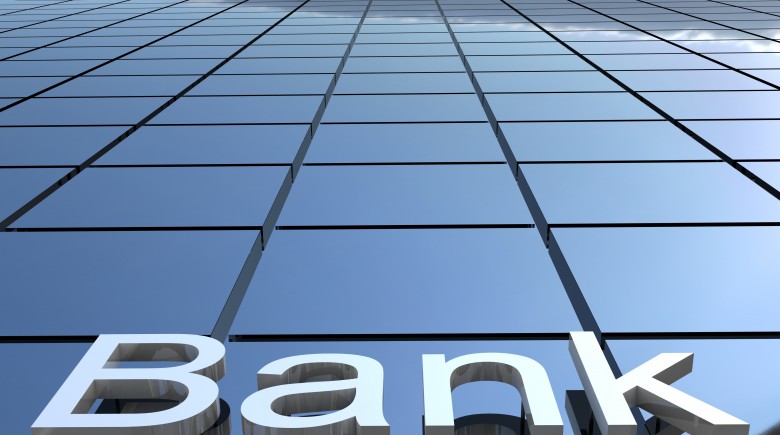Some people aren’t choosy when looking for a bank. In their minds, any bank that’s FDIC-insured is good for their money. But while many give little thought to picking a bank, this isn’t a decision to take lightly. No two banks are alike, and if you make a random selection, this can result in higher fees and sub par service.
You work hard for your money, thus it only makes sense to choose the best bank for your deposits. Convenient locations, low fees and competitive rates are desirable features of any bank. But if you’re looking for the best bank, here are four things to take into consideration.
1. Know yourself
What are your financial needs or goals? The answer to this question can help you determine the right type of account and institution for your funds. Banks have different strengths and they offer various financial products.
Let’s say you’re interested in growing your retirement or saving up for a big purchase. A bank with the highest savings interest rate or perhaps an interest-checking account can help reach these financial goals. Then again, maybe you’re a student with limited funds looking to open your first checking account. In this case, you may benefit from a no-fee student checking account. Have an idea of what you need in a bank first, and then explore your options.
2. Focus on your checking account
You may prefer to have your checking and savings account with the same bank. Understand, however, that it may be difficult to find a single bank that meets both your checking and savings needs. There is no rule that says your money has to be in the same place. The checking account will likely be your primary account. For this matter, when looking for the best bank, focus on checking account options. A checking account with desirable features, such as little to no fees and overdraft protection, can greatly improve your banking experience. You can always open a savings account elsewhere and link this account to your checking.
3. Check the branch hours
You may not think to inquire about bank branch hours, especially if you use online and mobile banking. But this information is good to know. You never know when you may need to visit a bank branch. There might be an issue with your account, or you may need to speak with a banker about additional services. Bank hours vary, and if you open an account with a bank that’s closed on Saturdays and only opened between the hours of 10 a.m. and 5 p.m. on the weekdays, taking care of financial matters can prove challenging. Consider how you like to bank and then choose a bank with hours convenient to your schedule. Some financial institutions open as early as 8 a.m. and don’t close until 6 or 7 p.m.
4. Don’t overlook Internet banks
You may prefer big banks because they have branches in multiple regions. But if you’re looking for the best bank, don’t overlook Internet banks. These banks are ideal if you prefer to never step foot inside a bank branch. Transfer funds from an existing bank account, and manage your accounts from your computer or smartphone. Internet banks don’t have tellers or branches, which lowers overhead costs. Because of lower costs, these banks can afford to pay better rates on checking and savings accounts.
Some people aren’t choosy when looking for a bank. In their minds, any bank that’s FDIC-insured is good for their money. But while many give little thought to picking a bank, this isn’t a decision to take lightly. No two banks are alike, and if you make a random selection, this can result in higher fees and sub par service.
You work hard for your money, thus it only makes sense to choose the best bank for your deposits. Convenient locations, low fees and competitive rates are desirable features of any bank. But if you’re looking for the best bank, here are four things to take into consideration.
1. Know yourself
What are your financial needs or goals? The answer to this question can help you determine the right type of account and institution for your funds. Banks have different strengths and they offer various financial products.
Let’s say you’re interested in growing your retirement or saving up for a big purchase. A bank with the highest savings interest rate or perhaps an interest-checking account can help reach these financial goals. Then again, maybe you’re a student with limited funds looking to open your first checking account. In this case, you may benefit from a no-fee student checking account. Have an idea of what you need in a bank first, and then explore your options.
2. Focus on your checking account
You may prefer to have your checking and savings account with the same bank. Understand, however, that it may be difficult to find a single bank that meets both your checking and savings needs. There is no rule that says your money has to be in the same place. The checking account will likely be your primary account. For this matter, when looking for the best bank, focus on checking account options. A checking account with desirable features, such as little to no fees and overdraft protection, can greatly improve your banking experience. You can always open a savings account elsewhere and link this account to your checking.
3. Check the branch hours
You may not think to inquire about bank branch hours, especially if you use online and mobile banking. But this information is good to know. You never know when you may need to visit a bank branch. There might be an issue with your account, or you may need to speak with a banker about additional services. Bank hours vary, and if you open an account with a bank that’s closed on Saturdays and only opened between the hours of 10 a.m. and 5 p.m. on the weekdays, taking care of financial matters can prove challenging. Consider how you like to bank and then choose a bank with hours convenient to your schedule. Some financial institutions open as early as 8 a.m. and don’t close until 6 or 7 p.m.
4. Don’t overlook Internet banks
You may prefer big banks because they have branches in multiple regions. But if you’re looking for the best bank, don’t overlook Internet banks. These banks are ideal if you prefer to never step foot inside a bank branch. Transfer funds from an existing bank account, and manage your accounts from your computer or smartphone. Internet banks don’t have tellers or branches, which lowers overhead costs. Because of lower costs, these banks can afford to pay better rates on checking and savings accounts.







